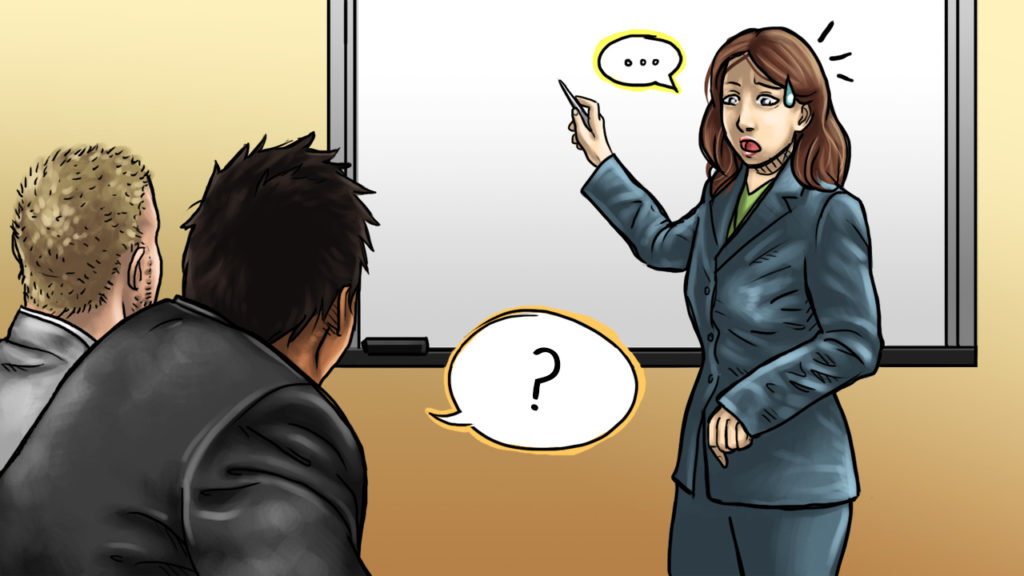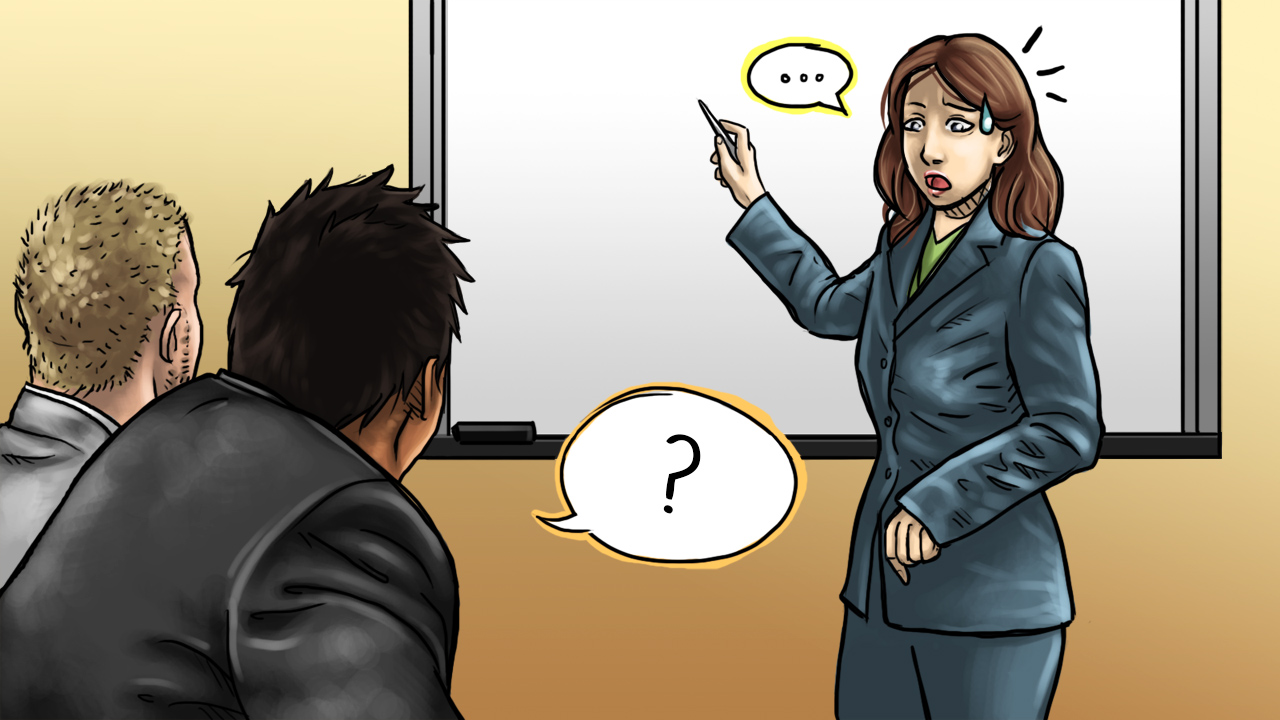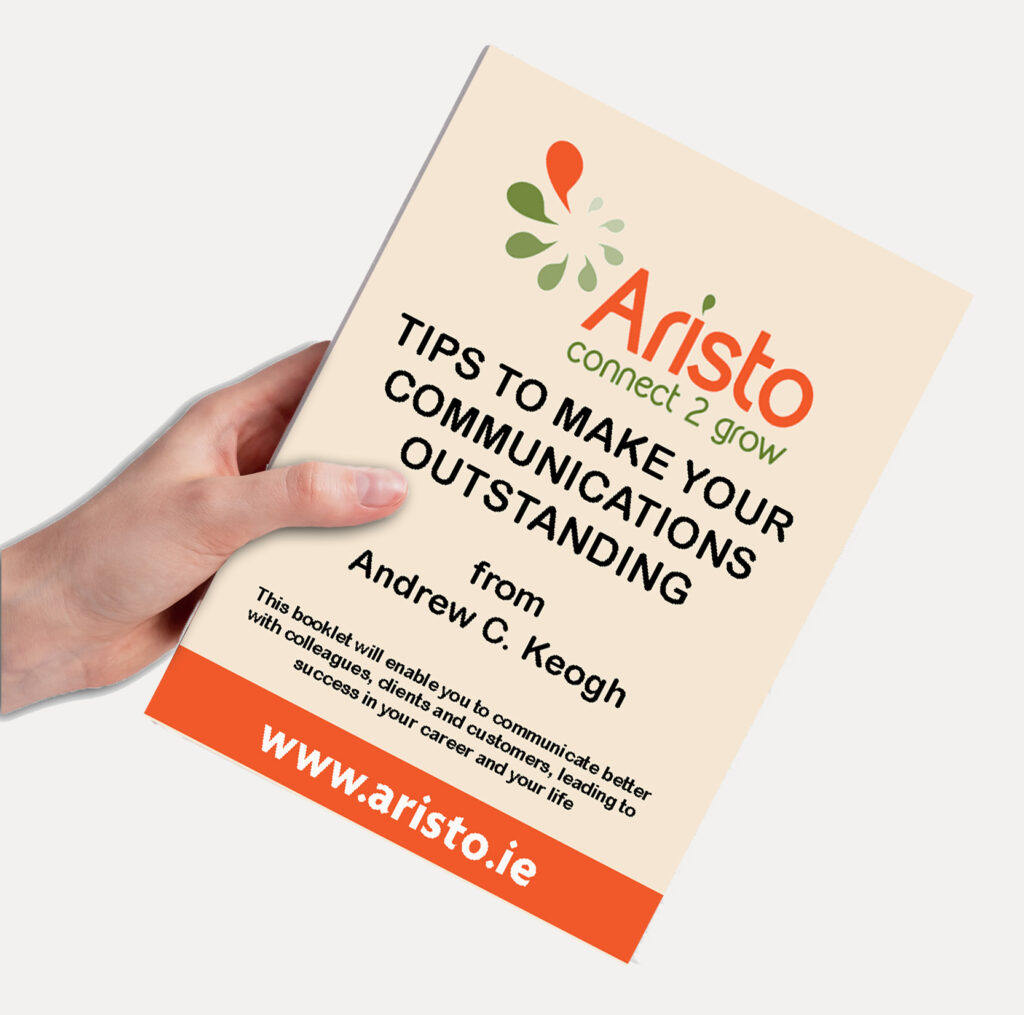
Why are you nervous in front of some audiences and not in front of others?
Regularly, I coach senior executives who are at the top of their game and leading major organisations with great success.
Yet, when I tell them what I do, they are all ears.
Why is this?
They tell me they can present on occasions without the slightest concern and feel they are comfortable and in charge, yet on other occasions their heart pumps out of their chest.
The reason for this is quite simple; the audience has changed.
With some audiences, they are in charge and not being evaluated by their peers, or are not concerned if they are.
On other occasions, there is some person or group who they feel they need to impress and prove themselves to all over again.
This person now has several options:
- Rely on the presentation that they always do, and if they are honest with themselves, have probably lost enthusiasm for.
- Add more slides and videos hoping to take the emphasis off themselves. Not a good idea as you are giving away your power and the video may not play on the day; this happens more often than you may think.
- Delegate all or part of the talk to somebody else, it’s always good to share opportunities with your team, but it must be for the right reasons.
- Ideally, with the support of a good coach, create a talk for this audience and no other.
“There are only two types of speakers in the world: the nervous and the liars” – Mark Twain
CLICK HERE TO FIND INFORMATION ON MY NEXT OPEN PRESENTATION PROGRAMME.
Now we are back to the first question that needs to be answered – who is the one person in the audience that must hear your message; will that message be of benefit to them? (make them better?)
In any business audience, there is usually one key influencer and if he/she gets your message, others will also pay attention.
Here are the questions you have to answer in preparation for your next presentation:
- Who is the audience, be specific; write down a name: ________________
- How as a result of listening to you and taking your advice will this person be better?
You must answer this question clearly and succinctly (this is your take-home message).
Remember one of Stephen Covey’s habits of highly effective people is “Start with the end in mind.”
What you usually see, when asked to review organisations slide presentations, is a final slide with a list of bullet points about what the presenter hopes are the reasons for you going with his/her proposal.
This, I believe, is not what the audience wants.
They want to be told very specifically in a sentence or two why they should take your advice. Ideally this message should be supported by an image that visualises the benefit you bring to the table.
The analogy I often use for explaining this to a client or an audience is as follows:
How often have you felt deflated, believed you had wasted hours of your valuable time watching a TV show or reading a book only to find it has a most disappointing end?
Great movie directors and writers know how the film or book is going to end before they roll a camera or write a chapter.
So should you! (A good coach can speed up this process.)
CLICK HERE TO FIND INFORMATION ON MY NEXT OPEN PRESENTATION PROGRAMME.




